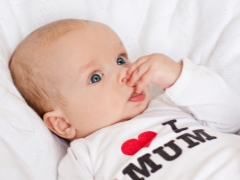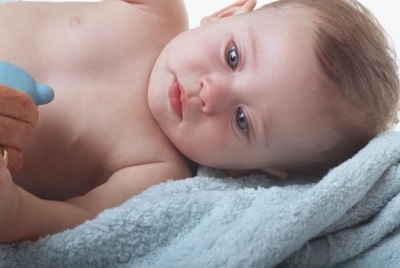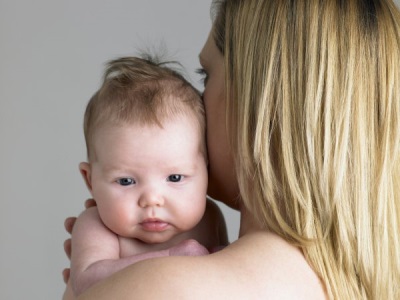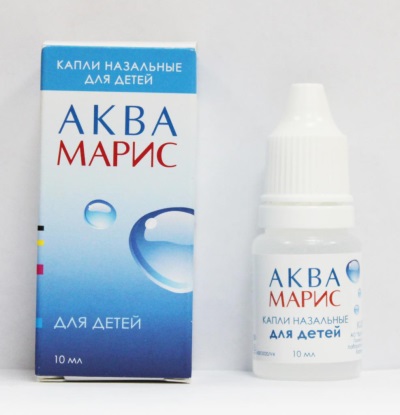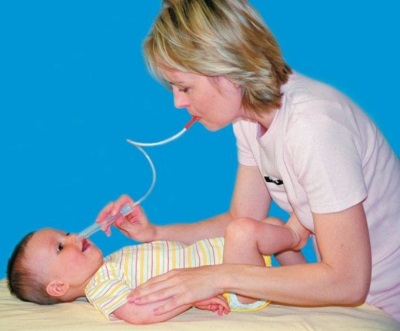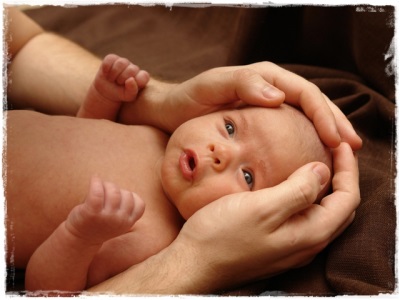Physiological rhinitis in infants and newborns
Any discomforts in an infant baby cause concern and anxiety among parents. However, some symptoms occur in quite healthy babies, for example, a runny nose. In this case, it is called physiological.
What is it?
To physiological carry a runny nose, which is natural for the child's body in the first months of life. It appears due to the adaptation of the newly born baby to nose breathing.
While in utero oxygen was supplied to the crumbs from maternal blood, the airways did not take part in the process of respiration. And immediately after the birth, the glands of the nasal mucosa do not function, because there was no need for moisturizing the nasal cavity during their stay in the womb.
When a child begins to breathe, it becomes necessary to clean, warm and moisten the air entering the lungs. The nasopharyngeal glands are responsible for this, and, since their work is not yet regulated, mucus in the nose begins to be produced in excess.
As soon as the feedback is turned on (the body "understands" that so much mucus is not required for moisturizing the nasal cavity), the secretion of mucus is reduced and the runny nose passes on its own. Provided that parents do not interfere in this natural process.
Symptoms
It is possible to determine that a baby has a physiological rhinitis by the following signs:
- The general well-being of the baby is not broken.
- The baby normally sucks the breast or drinks the bottle mixture.
- The baby sleeps well.
- No fever or cough.
- The discharge looks like clear, transparent mucus. It comes out in small quantities, but the bulk of the mucus remains in the nose.
- The child breathes his nose freely (swelling of the mucous is absent).
- During feeding the baby begins to sniffle and "squish" the spout.
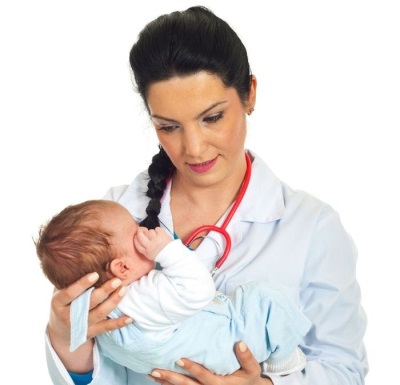
How long does it take?
The average duration of the physiological rhinitis in infancy is 8-10 weeks. Often, by the age of three months, all the symptoms of such a problem disappear completely. If in the room where the baby is, all the conditions facilitate the production of mucus, a runny nose can go away in a few days. The optimal parameters for a newborn's room are 50-60% humidity and the temperature is not higher than +20.°WITH.
With excessively dry air or excess dust in the room, the duration of the cold is delayed.
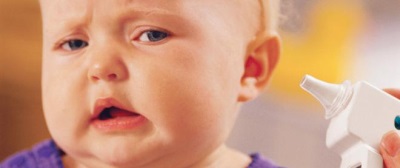
How to treat?
If the crumbs of a crumb is indeed physiological, the doctor will recommend to provide in the room where the baby is, sufficiently moist, clean and cool air. Parents need to:
- Regularly perform wet cleaning to reduce the amount of dust in the room and ensure the purity of the air inhaled by the infant.
- Remove the newborn from the room carpets, books, soft toys and houseplants, that is, all items that can accumulate dust.
- Regularly ventilate the room and monitor the air temperature in it, keeping it at the optimum level for the child’s breathing.
- Laying the baby on a nap in the fresh air.
- Bury the baby spout with solutions based on sodium chloride or sea water. Such solutions include saline, saline, Aquamaris, Aqualore. It is important to note that such products need to be instilled, and sprays should not be used at an early age.
- Purchase a humidifier, which will help to establish the desired humidity in the room.
- In the absence of a humidifier, hang a damp cloth around the room or place containers filled with water.
- If the baby has difficulty breathing because of the large amount of mucus, you can fill the bath with hot water and then bring the baby in for a few minutes so that the baby can inhale the wet steam.
In the following fragment of the TV program "Without a prescription," the doctor of medical sciences will tell you how you can cure a newborn's runny nose without causing damage to his health.
What can not be done?
When the physiological rhinitis in the infant should not be instilled into the nose vasoconstrictor drugs, suck mucus from the nose of the baby with an aspirator or a small enema.
Such treatment will dry the mucous membrane, giving it a signal for even more active glands. Accordingly, mucus will appear even more, and the duration of a cold will increase.
Is it possible to walk?
Since the well-being of a baby with a physiological rhinitis is not disturbed, there are no reasons forcing a child to stay at home and refrain from daily walks. Moreover, on the street the baby will breathe fresh fresh air, which has a beneficial effect on the condition of the nasal mucosa. So most pediatricians support the idea of walking with babies if he has a cold. You just need to wear a baby for the weather.
Warning signs
Parents should consult a doctor if:
- The physiological rhinitis did not end at the end of the third month of life.
- The crumbs have increased body temperature.
- Baby refuses to eat and drink.
- The baby had shortness of breath.
- Highlight is not transparent, and acquired a yellow or green tint.
- An admixture of blood appeared in the mucus.
- The child loses weight, because the cold prevents the baby from sucking milk.
- On the wings of the nose or on the surface of the mucous membrane appeared painful sores.
Watch the following video in which Dr. Komarovsky talks about how to treat a cold.
